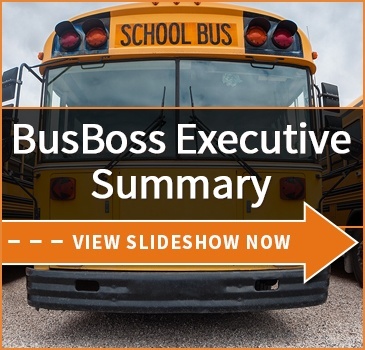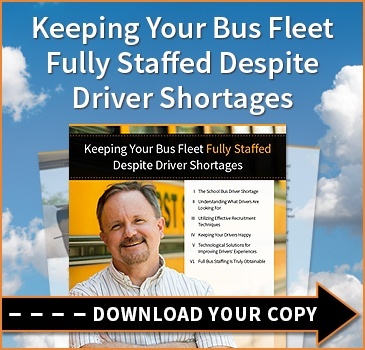Drastic Changes for Back-to-School 2020
published on November 17, 2020 by Sonia Mastros
Student School Bus Safety, School Bus News, school bus safety plans, covid-19
 For better or worse, back-to-school 2020 is here around the country, despite the ongoing COVID-19 outbreak. Every district has their own solutions for how to continue providing education despite the coronavirus, but one thing is indisputable: drastic changes have to be made to the US school system, and those changes are likely to stay in place for at least the entire 2020-21 year.
For better or worse, back-to-school 2020 is here around the country, despite the ongoing COVID-19 outbreak. Every district has their own solutions for how to continue providing education despite the coronavirus, but one thing is indisputable: drastic changes have to be made to the US school system, and those changes are likely to stay in place for at least the entire 2020-21 year.
It would be difficult to fully catalog all the changes happening, but these are some of the most prominent, or most likely to have long-lasting effects.
How COVID-19 Is Changing Back-To-School 2020
1 - An embrace in distance learning
Maybe the biggest change coming from the coronavirus is that a lot of districts are now relying on Internet-based distance learning for some, or even all, of their classes. Those that feel uncomfortable reopening, or are in outbreak hotspots, are moving classes online. Like the move towards remote work, this is probably going to become a fixture in US schooling in the years ahead.
2 - Drastically reduced bus and classroom sizes
Due to the need for social distancing, a school district trying to protect its students and staff will only be able to have around 1/4 as many students in one place, at one time. This basic need for distancing is causing districts to make massive changes to how they run their buses, and structure their in-person classes.
3 - Staggered class hours
One of the most common ways of adapting to the need to spread out students has been to stagger classes and start times. Rather than every student being on campus from roughly 8AM to 4PM, districts are breaking up teaching blocks. Some are embracing every-other-day schedules, others are simply stretching their school day to run from something like 6AM to 8PM, with classes arriving and leaving at different hours - although the increased strain this will put on teachers may not be sustainable.
4 - Moving classes outdoors
While only an option in some areas/climates, outdoor classes do solve a lot of problems with regard to disease transmission. COVID-19 viruses die quickly in open air environments, making outdoor classes inherently safer than staying indoors.
5 - The need for more subs and standbys
School districts must be looking to hire more subs and replacement bus drivers, at least to go on a standby list. When exposure to COVID-19 necessitates a quarantine of 2-3 weeks, any staff member might become unavailable at any time. There need to be alternatives and backups available.
These are difficult times, maybe the most difficult ever faced by the US school system. How is your district adapting to back-to-school 2020? Please share your tips and suggestions in the comments below.





